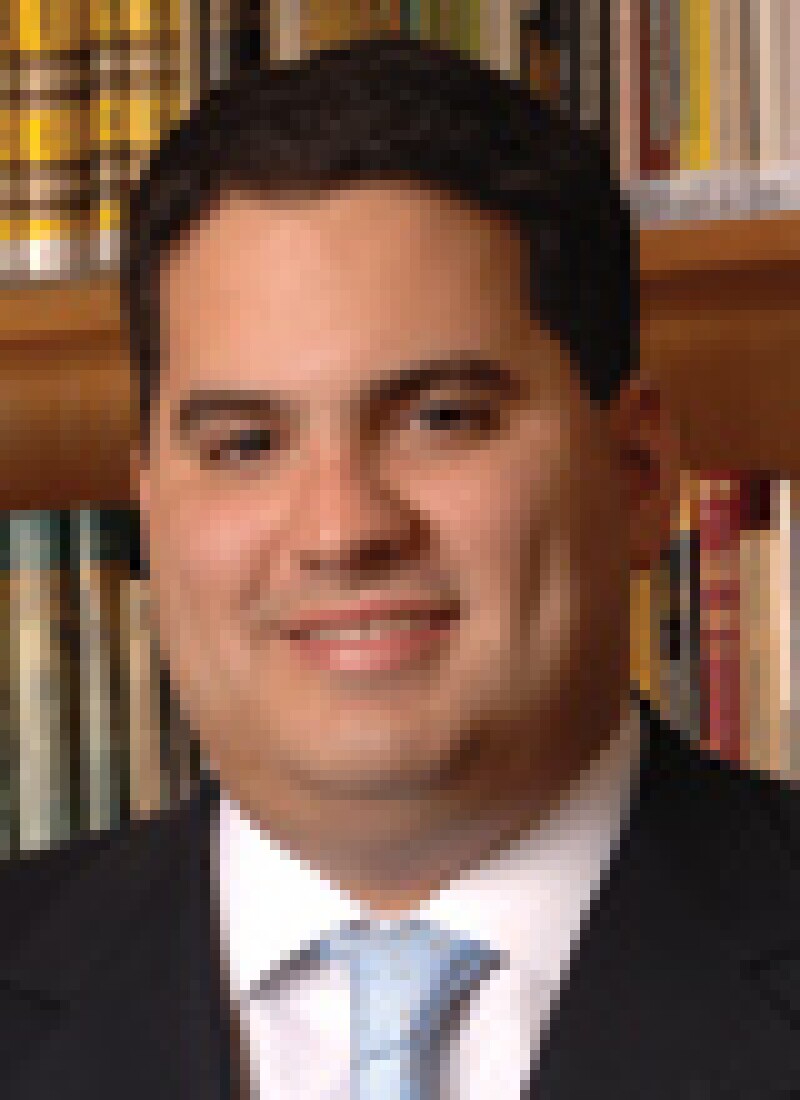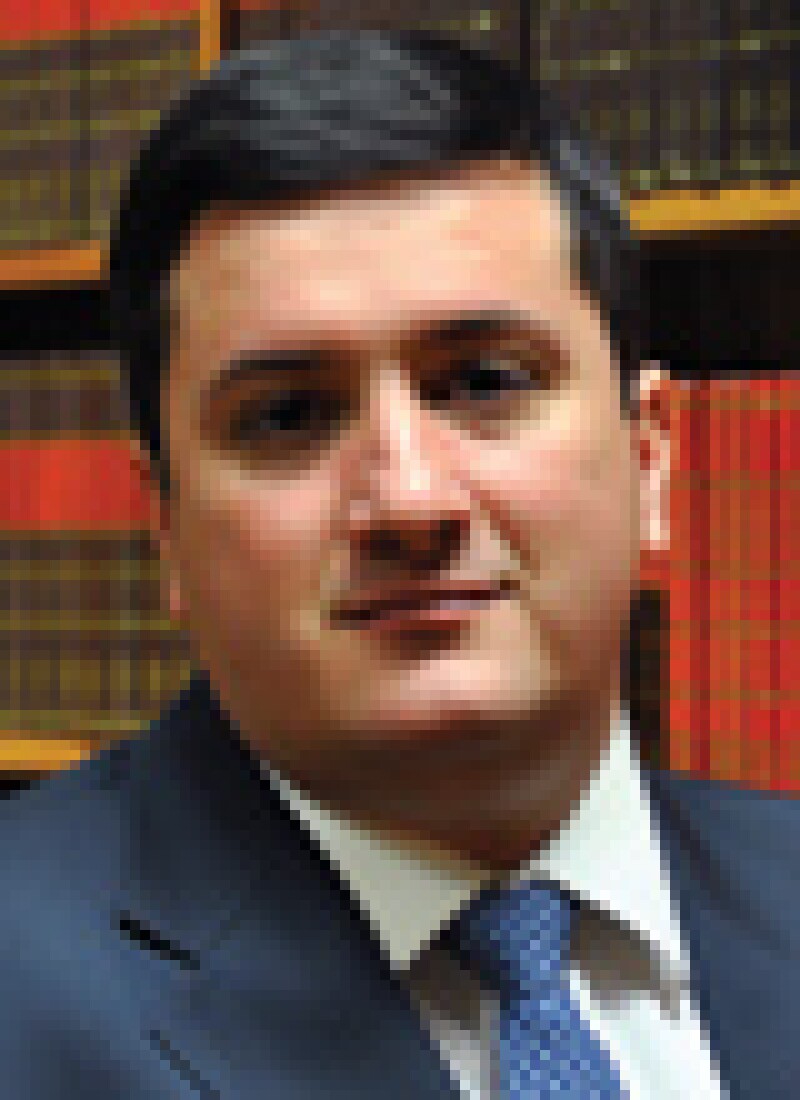Under Brazil's federal constitution of 1988, the states of the federation and the federal district are entitled to establish tax on the "circulation of merchandise, on interstate and inter-municipal transportation services, and on communication services". The states' powers over this value-added tax, or Imposto sobre Operações relativas à Circulação de Mercadorias e Prestação de Serviços de Transporte Interestadual e Intermunicipal e de Comunicação (ICMS), are not unlimited, however. One limitation is found in article 155 §2 (XII) (g), which provides that a specific type of federal legislation known as a complementary law is required to grant ICMS exemptions and other benefits.
Complementary law 24 of 1975 (CL 24/1975) provides that the states must enter into agreements, at meetings attended by representatives of a majority of the states and federal district, to establish (i) exemptions, (ii) reductions, (iii) partial or full reimbursements, (iv) presumed tax credits, and (v) any other tax incentives or advantages based on the ICMS that result in a direct or indirect reduction or exclusion of the tax.
The legislator's purpose in requiring the states to arrive at an agreement on the grant of tax benefits is to prevent tax wars between states that offer incentives designed to attract business to their territories. These incentives can include not only tax breaks of various kinds, but also financial and infrastructure benefits.
According to CL 25/1975, if ICMS tax benefits are granted without following the procedure established in the legislation (i) the act by which the benefit was granted will be null and the any tax credit attributed to taxpayers will be ineffective, and (ii) any unpaid or reimbursed tax will become subject to collection, and the legislation or act that granted remission of the corresponding tax debt will be ineffective.
Despite the express provisions of the constitution, however, over the last few years various Brazilian states have granted ICMS tax benefits without entering into a multi-lateral agreement pursuant to CL 25/1975.
States that believe they have been victims of these tax wars have challenged the constitutionality of the legislation creating ICMS tax benefits under Direct Actions for Declaration of Unconstitutionality (Ações Diretas de Inconstitucionalidade, or ADIs) brought before Brazil's highest court, the Supreme Federal Tribunal (Supremo Tribunal Federal).
In a recent judgment, the Supreme Federal Tribunal examined various pieces of state legislation that purported to create ICMS tax benefits and declared, by unanimous decision, that 14 state laws were unconstitutional for failure to comply with the provision under the constitution that imposes the requirement for a multilateral agreement between states in order to create ICMS exemptions and reductions benefiting businesses or economic sectors. The unconstitutional legislation had been enacted by the states of Rio de Janeiro, Mato Grosso do Sul, São Paulo, Paraná, Espírito Santo and Pará and by the Federal District.
The Supreme Federal Tribunal also held that tax benefits granted without a multilateral agreement under CL 25/1975 in connection with goods and services traded between Brazilian states and on imported goods (in some cases these benefits were granted by state decree) were unconstitutional.
As a result of the Supreme Federal Tribunal's decisions, all the ICMS tax benefits that were declared to be unconstitutional will be annulled, and the taxpayers that joined the tax incentive programmes may become subject to collection of the amounts corresponding to the unconstiutional benefits.
The judgment does not apply, however, to tax benefits that were granted contrary to the constitution and CL 25/1975 but were not specifically contemplated in the ADIs.
Nevertheless, although the Supreme Federal Tribunal's decision relates only to the tax benefits at issue in the 14 ADIs, it is now clear that ICMS benefits cannot be granted except pursuant to a multilateral agreement within the terms of CL 25/1975, and the other ADIs on the matter still pending before the Tribunal will doubtless also be granted.
The big question that the Supreme Federal Tribunal's decision raises is the loss that will be suffered by taxpayers that, in good faith, made use of the tax benefits granted by the states and will now be subject to collection of the amounts of tax that were exempted or reduced.
In light of the repercussions for taxpayers, many states have mobilised efforts to negotiate a multilateral agreement that would legalise the ICMS benefits declared to be unconstitutional by the Supreme Federal Tribunal.
Such an agreement would protect the interests of taxpayers that were encouraged by ICMS incentive programmes and other benefits to set up their businesses in certain states, by ensuring that they will not called upon to pay ICMS retroactively, at the full rate.
Luiz Gustavo Bichara |
||

|
|
Bichara, Barata, Costa & Rocha Advogados Rua do Ouvidor, 121 - 23º ao 29º andar Centro - Rio de Janeiro - RJ CEP: 20040-030 Brazil Tel: +55 21 3231 8011 Email: bichara@bbcr.com.br Website: www.bbcr.com.br Luiz Gustavo Bichara is the managing partner of Bichara, Barata, Costa & Rocha Advogados. Luiz received his law degree from Cândido Mendes University Law School, and is a member of the Brazilian Bar Association in the states of Rio de Janeiro, São Paulo, and Espírito Santo, and in the Federal District. He is the executive officer of the Brazilian Association of Financial Law, and a member of the International Fiscal Association (IFA), where he has been appointed to represent Brazil before the General Council. He is a member of the Brazilian Academy of Tax Law, the Brazilian Constitutional Law Institute, the Brazilian Tax Law Association, and the Legal Studies Committee of the Brazilian Association of Franchising. He is president of the Brazil-Honduras Chamber of Commerce, and vice-president for legal affairs of the Brazil-Argentina Chamber of Commerce of Rio de Janeiro. Luiz is a former president of the Corporate Law Alliance (ALAE), which reunites 32 law firms in Brazil and Latin America, and remains one of its most active members. He attended the programme of instruction for lawyers at Harvard Law School in 2003, and is a professor in the postgraduate course in tax law of the Unigranrio Law School and the LLM programme in tax law at IBMEC Business School. Luiz is also chairman of the special committee for tax affairs of the Brazilian Bar Association (Rio de Janeiro). As one of the most renowned lawyers in Brazil, Luiz was appointed by Análise Advocacia, one of the most respectable law publications in Brazil, as one of the most admired tax lawyers in Brazil in 2006, 2008, 2009 and 2010. He was also highlighted in Chambers & Partners and Who´s Who legal publications as one of the best tax lawyers in Brazil. In Chambers Latin America 2010 and 2011 Luiz was mentioned in the tax litigation area and was recognised at the 2010 Americas Tax Awards by International Tax Review. He is fluent in Portuguese and English. His areas of practice are tax and social security. 
|
Júlio De Oliveira |
||

|
|
Machado Associados Av Brigadeiro Faria Lima 1656, 11º andar 01451 – 918 São Paulo SP Brazil Tel: +55 11 38194855 Email: joliveira@machadoassociados.com.br Website: www.machadoassociados.com.br Júlio De Oliveira is a partner of the law firm Machado Associados. He has a masters and PhD in tax law from Pontifícia Universidade Católica de São Paulo. He has acted in several significant tax proceedings relating to direct and indirect tax as well as payroll tax. He renders consulting services to large domestic and international companies. He is part of the numerous committees and associations made up of companies that seek to improve the Brazilian tax system. He was an examining professor on the boards granting master's degrees at PUC/SP and was a former judge of the Tax Administrative Court of the State of São Paulo (TIT). He is a professor of tax law at PUC/SP and GV Law and professor of the specialisation course in tax law at Universidade de São Paulo (USP). He was appointed as one of the most respected tax lawyers in Brazil by the "Os Mais Admirados do Direito" Yearbook in 2006, 2008, 2009 and 2010, and was nominated by Who's Who Legal as one of the 30 outstanding Brazilian tax lawyers in the corporate area in 2010 and 2011. He is the author of the book Internet e Competência Tributária (Editora Dialética) and O Princípio da Legalidade e sua aplicabilidade ao IPI e ao ICMS (Quartier Latin). He is the co-author of the following books: Processo Tributário Analítico (Editora Noeses), IPI – Aspectos Jurídicos Relevantes (Editora Quartier Latin), ISS – Lei Complementar 116/2003 (Editora Juruá), Comentários ao Código Tributário Nacional (Editora MP), Curso de Especialização em Direito Tributário: Estudos em Homenagem a Paulo De Barros Carvalho (Editora Forense), Interpretação e Estado de Direito (Editora Noeses), ICMS – Questões Fundamentais (Editora MP), Questões Fundamentais – IPI (Editora MP), Grandes Questões Atuais do Direito Tributário – 10th Volume (Editora Dialética), Sistema Tributário Brasileiro e a Crise Atual (Editora Noeses), Estudos em Homenagem a José Eduardo Monteiro de Barros – Direito Tributário (MP Editora), Revista Direito Tributário Atual (Revista dos Tribunais), Tributação Empresarial (Saraiva – Série GVLaw), Direito Tributário: Homenagem a Paulo de Barros Carvalho (Quartier Latin), ISS – Lei Complementar 116/2003 (MP EDITORA) Direito Tributário e os Conceitos de Direito Privado (Editora Noeses) and others. 
|
Daniel Lacasa Maya |
||

|
|
Machado Associados Av Brigadeiro Faria Lima 1656, 11º andar 01451 – 918 São Paulo SP Brazil Tel: +55 11 38194855 Email: dmaya@machadoassociados.com.br Website: www.machadoassociados.com.br Daniel Lacasa Maya is a partner in tax litigation at Machado Asociados where he has worked in the tax advisory and litigation area since 1994. He has a degree from Pontifícia Universidade Católica de São Paulo. During his career, he has handled judicial and administrative litigation in matters of federal, state and municipal taxes, including advising on cases before the Federal Supreme Court, presenting oral arguments before the Full Session of the Court, the Superior Court of Justice, and the 1st and 2nd panels of the Court. He has also presented oral arguments before the Administrative Council of Tax Appeals (CARF) the former Taxpayers' Council, and before panels of the High Court of Tax Appeals. He is a professor of postgraduate courses in tax law at Fundação Getúlio Vargas and of Instituto Internacional de Ciências Sociais, and he has also given classes in postgraduate courses in tax law at COGEAE – PUC/SP and the Instituto Brasileiro de Estudos Tributários. 
|
Maurício Pereira Faro |
||

|
|
Barbosa Müssnich & Aragão (BM&A) Av. Almirante Barroso, 52 / 31º floor Rio de Janeiro - Brazil 20031-000 Tel: +55 21 3824 6033 Fax: +55 21 3824 6090 Email: mpf@bmalaw.com.br Website: www.bmalaw.com.br Mauricio Pereira Faro is a partner of Barbosa Müssnich & Aragão (BM&A), which he joined in June 2007. He is a lecturer in the Continuing Education Program at Cândido Mendes University, Universidade Federal Fluminense – UFF, and Getúlio Vargas Foundation – RJ. He was a tax magistrate of the Rio de Janeiro State Treasury in 2008-2009 and is a judging counsel at Federal Administrative Council of Tax Appeals – CARF (2010-2013) He is a member of the Brazilian Bar Association, Rio de Janeiro section; the Special Commission on Tax Matters, Brazilian Bar Association (OAB-RJ) and the council of the Brazilian Bar Association (2010-2012). Mauricio has a master of law studies degree from the Gama Filho University – UGF, a specialisation in tax law from the Brazilian Institute of Tax Studies – IBET (2004) and a law degree from Rio de Janeiro State University -UERJ (2001). He speaks Portuguese and English. 
|
Manuella Vasconcelos Falcão |
||

|
|
Bichara, Barata, Costa & Rocha Advogados Rua do Ouvidor, 121 - 23º ao 29º andar Centro - Rio de Janeiro - RJ CEP: 20040-030 Brazil Tel: +55 21 3231 8011 Email: falcao@bbcr.com.br Website: www.bbcr.com.br Manuella Vasconcelos Falcão was born in Rio de Janeiro and is a partner of Bichara, Barata, Costa & Rocha Advogados. Manuella received her law degree from the Federal University of Rio de Janeiro, and did her post-graduate studies in tax law at the Brazilian Institute for Tax Studies. Her previous professional experience includes the Federation of Industries of the state of Rio de Janeiro, the public defender's office of the state of Rio de Janeiro, and work in medium size law firms. She is the author of articles published in magazines and books specialising in law. She is a member of the Bar Association of Brazil, Rio de Janeiro section, of the Brazilian Association of Financial Law, of the International Fiscal Association, and of the Tax Debate Group of Rio de Janeiro. She was coordinator for the tax procedure course promoted by the Brazilian Financial Law Association between August and October 2009. Manuella joined Bichara, Barata, Costa & Rocha in 2002 as an intern in the tax department, and in 2010 became a tax partner. She is fluent in Portuguese and English. 
|
Gustavo Brigagao
Ulhoâ Canto, Rezende e Guerra
Roque Carrazza
Roque Carrazza Advogados Associados
Alberto Daudt de Oliveira
Daudt, Castro & Galloti Olinto Advogados
Paulo de Barros Carvalho
Barros Carvalho Advogados Associados
Júlio M de Oliveira
Machado Associados
Hamilton Dias de Souza
Dias de Souza Advogados Associados
Simone Dias Musa
Trench, Rossi e Watanabe Advogados/Baker & McKenzie
Gilberto Fraga
Fraga Bekierman & Pacheco Neto Advogados
Leo Krakowiak
Advocacia Krakowiak
Ricardo Lodi
Lodi & Lobo Advogados
Clarissa Machado
Trench, Rossi e Watanabe Advogados/Baker & McKenzie
Ricardo Mariz de Oliveira
Mariz de Oliveira e Siqueira Campos Advogados
Roberto Quiroga Mosquera
Mattos Filho Veiga Filho Marrey Jr e Quiroga Advogados
José Roberto Pisani
Pinheiro Neto Advogados
Sergio Andre Rocha
Ernst & Young
Paulo Sehn
Trench, Rossi e Watanabe Advogados/Baker & McKenzie









